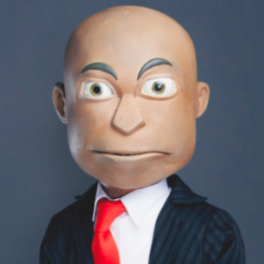I’ll be brief, simply because other people have written, or are writing, data-driven analyses that will end up being more valuable than these few fragments.
First, it is, or should be, a source of great head-scratching for some as to how the ANC didn’t lose more support than it did. My predictions had them achieving 62%, but even so, I think they should ideally have lost more ground than they did.
The short version of why I think they didn’t lose more is simply because there is a vast difference between the media I consume, and the people I talk to, compared with what the average South African consumes and who they talk to.
 Those of us on Twitter, in academia and (occasionally, as I am of late) in the media themselves can, just as everyone else, mistake their personal filter bubbles for popular sentiment. And as much as one might wish it were different, it really doesn’t seem as if the scandals of Nkandla and Waterkloof, or the obscenity of Marikana, made as much of a difference as we thought it would.
Those of us on Twitter, in academia and (occasionally, as I am of late) in the media themselves can, just as everyone else, mistake their personal filter bubbles for popular sentiment. And as much as one might wish it were different, it really doesn’t seem as if the scandals of Nkandla and Waterkloof, or the obscenity of Marikana, made as much of a difference as we thought it would.
This doesn’t necessarily mean, as some seem to want us to believe, that we have an unsophisticated electorate. Voters the world over vote on what they experience, and what they know – and the task before us is to understand the motivations for those who vote ANC despite these scandals, not think them defective because they don’t vote otherwise in protest. To be frank, in countries like ours (with the class divisions so closely correlated with race), arguments around “unsophisticated electorates” seem to frequently be little but cover for racist sentiments.
For example, note that in KwaZulu-Natal, the ANC won a larger number of votes than in 2009, and that even though the turnout there was lower than in 2009, the percentage drop in turnout was less than the national average. If Zuma was the problem (or rather, if Zuma was perceived to be the problem), KZN would be a likely place to observe a significant decrease in ANC support, or increasing apathy at the ballot box – neither of which seem to be the case.
So, why did the ANC not lose more support, in as adverse circumstances as one can imagine? One suggestion would be that the competition – besides the EFF, which grew from nothing to attracting 6.35% of the vote – isn’t offering a compelling alternative. The DA, as Stanley Greenberg put it a week before the election, might in retrospect have wanted to spend more time punting its successes than the ANC’s failures, one presumes because people are more interested in what you can do for them, rather than what the other party is failing to do for you.
This is perhaps related to the issue that I’ve mentioned before in my review of Eusebius McKaiser’s “Could I vote DA?“, namely that of the DA’s occasional tone-deafness, in this case arguably manifested in a focus on negative commentary on the failures of others, which – if you’re (wrongly, but nevertheless) identified as a white party – easily conforms to a race-based caricature whereby you’re the party of white privilege telling the (black) liberation party that they aren’t up to the job.
Even if people don’t think this way (and I don’t think many do), they might feel this way, and emotional factors also influence voting behaviour. This has been a concern for some in the DA for going back at least as far as Ryan Coetzee’s 2006 document detailing a strategy for becoming a “party for all”, and I’m not convinced that the lesson of separating the rational and emotional has ever completely been learnt in the party.
Which brings me, in conclusion, to today’s Business Day column by Gareth van Onselen, in which he discusses Lindiwe Mazibuko’s decision to take a sabbatical year, in order to study at the Kennedy School at Harvard. First, congratulations and best wishes to Lindiwe, whom I’m friendly with. Regardless of anything else, it’s a great opportunity, and she’ll (and we’ll, if she returns to active politics) benefit from her choice.
But second, if his account is correct, it does point to significant tension within the Democratic Alliance around leadership and strategic direction. Some tension isn’t at all unusual in any large organisation, but the extent of it, as detailed in the column, should be very troubling to anyone who – like me – is committed to the liberal tradition in South Africa, and who has hopes for the DA to be flag-bearers for that tradition.
Not, to be clear, because I don’t think they’re capable of doing that. But more because internal squabbles, and their public airing, don’t create the impression of a coherent policy direction, or of broad agreement with a particular policy direction. As I’ve said many times over the years, I’d prefer to evidence to trump impressions, but it’s all too clear that they often don’t.
The ANC, with its established advantage in the electoral market, can get away with bad optics. The DA, less so.
[Edit]The DA’s current Director of Communications, Gavin Davis, has now responded to the van Onselen column linked above (my link is to his blog, but the piece was also carried as a letter in the Business Day.[/edit]



